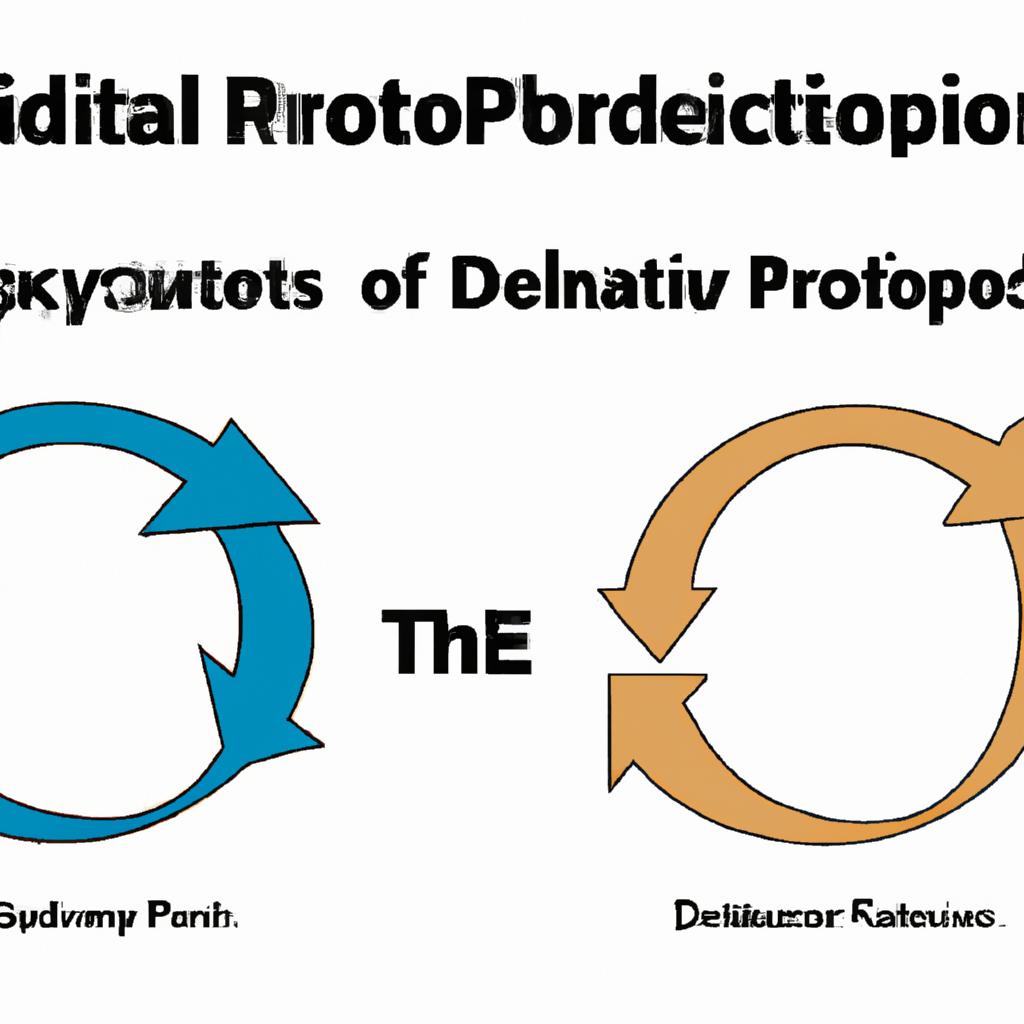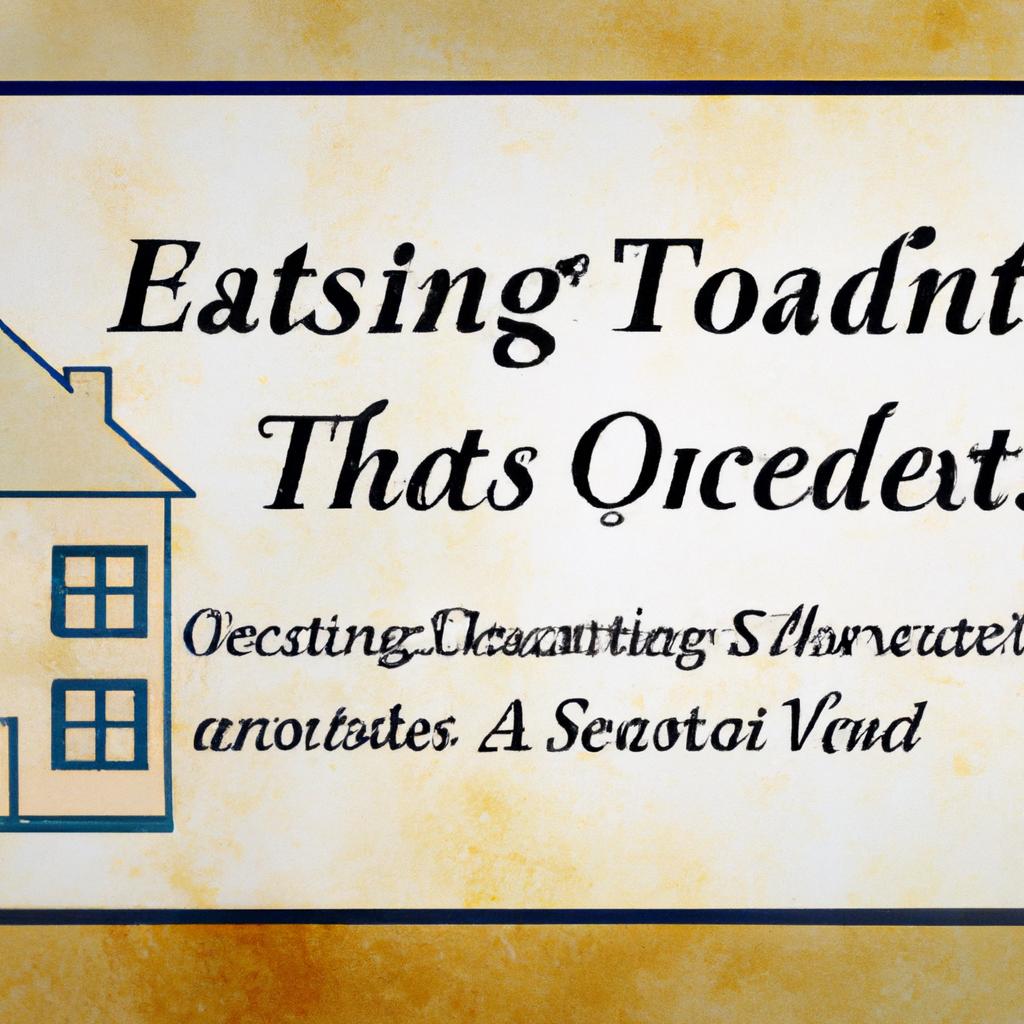When the final curtain falls on the stage of life, what becomes of the humble abode left behind by the departed owner? This solemn question often brings about complexities and uncertainties in the realm of real estate law. As seasoned practitioners at Morgan Legal Group in the bustling city of New York, we have navigated the intricate web of estate planning, probate, and the intricate intricacies of elder law. Join us as we shed light on the meticulous process that unfolds when a homeowner takes their final bow, leaving behind a property awaiting its fate.
Title: What Happens to a House When the Owner Passes Away
When the owner of a house passes away, the property typically goes through a legal process known as probate. During probate, the deceased person’s assets, including the house, are identified, valued, and distributed according to their Will or state law if there is no Will. The house may be sold to pay off debts and taxes, or transferred to beneficiaries as specified in the Will. If the deceased person did not have a Will, the house will be distributed according to the state’s intestacy laws.
It is important to note that the probate process can be complex and time-consuming, requiring court supervision and legal guidance. At Morgan Legal Group, our team of experienced estate planning attorneys can assist with navigating the probate process, ensuring that the deceased person’s wishes are carried out and that their assets, including their house, are distributed properly. Contact us today for a consultation on estate planning, probate, and other legal matters related to the passing of a loved one.

Heading 1: Probate Process and Property Distribution
When a person passes away, their estate must go through the probate process to determine how their assets will be distributed. This includes their house, which is often one of the most valuable assets in an estate. During probate, the court will examine the deceased person’s Will (if they have one) and determine who the rightful heirs are.
Once the court has determined the heirs, the house will be distributed according to the terms of the Will. If there is no Will, state law will dictate how the property is distributed. This process can be complex and time-consuming, which is why it’s important to work with an experienced probate attorney like the experts at Morgan Legal Group in New York City. Our team can help guide you through the probate process and ensure that your loved one’s property is distributed according to their wishes.

Heading 2: Importance of Estate Planning for Smooth Transition of Homeownership
When a homeowner passes away without a proper estate plan in place, the fate of their house becomes uncertain and can lead to a host of challenges for their loved ones. Without clear instructions on who inherits the property, there can be confusion, disputes, and delays in the transfer of homeownership. This can result in financial burdens, potential legal battles, and emotional strain on family members during an already difficult time.
By establishing a comprehensive estate plan that includes details on the transfer of homeownership, individuals can ensure a smooth transition of their property to their chosen beneficiaries. This can help avoid probate court, minimize estate taxes, protect the property from creditors, and provide peace of mind knowing that their wishes will be carried out. With the help of experienced estate planning attorneys, like those at Morgan Legal Group, individuals can create a plan that protects their assets and ensures that their home is passed down to the next generation seamlessly.

Heading 3: Considerations for Selling or Transferring Ownership of the House
When a homeowner passes away, it raises important considerations for their property. Selling or transferring ownership of the house is a common issue that arises in estate planning. One important factor to consider is the presence of a valid Will that outlines the wishes of the deceased regarding their property. If a Will exists, it will dictate how the property should be transferred or sold. However, if there is no Will, the property may need to go through the probate process to determine how it should be handled.
Another consideration when selling or transferring ownership of a house is the presence of joint owners. If the deceased owned the property jointly with someone else, such as a spouse or business partner, the ownership rights may automatically transfer to the surviving owner. It is important to review the title deed and any applicable contracts to determine the rights and responsibilities of all parties involved in the ownership of the house. Consulting with an experienced estate planning attorney can help navigate the complex legal issues that may arise in these situations.

Heading 4: Seeking Legal Guidance to Navigate Complexities of Property Inheritance
If you find yourself grappling with the complexities of property inheritance after the passing of a loved one, seeking legal guidance can be the key to navigating this intricate process with ease. When it comes to the question of what happens to a house when the owner dies, there are various legal considerations that need to be addressed to ensure a smooth transition of ownership. By consulting with a knowledgeable estate planning attorney, you can gain valuable insight into the legal nuances surrounding property inheritance and devise a plan that aligns with your specific needs and wishes.
At Morgan Legal Group, our team of experienced attorneys specializes in estate planning, probate, elder law, Wills, and trusts. We understand the importance of protecting your assets and ensuring that your property is distributed in accordance with your wishes. By enlisting the help of our skilled legal professionals, you can rest assured that your property inheritance matters will be handled with the utmost care and attention to detail. Let us guide you through the intricacies of property inheritance and provide you with the expert legal counsel you need to navigate this complex process successfully.
Q&A
Q: What happens to a house when the owner dies?
A: When a homeowner passes away, the fate of their house depends on various factors.
Q: Can the house be inherited by family members?
A: Yes, typically a house will be passed down to the deceased owner’s family members through a will or trust.
Q: What if there is no will or designated heir?
A: In this case, the house may go through the probate process, where the court will determine who should inherit the property.
Q: What if the house has outstanding debts or mortgages?
A: The debts and mortgages of the deceased owner will need to be settled before the house can be passed on to any heirs.
Q: Can the house be sold instead of being inherited?
A: Yes, if the deceased owner’s family members decide to sell the house instead of inheriting it, they can do so through the probate process.
Q: What if the house is left unoccupied after the owner dies?
A: If the house is left unoccupied for an extended period of time, it may be subject to tax liabilities or may be at risk of being vandalized or falling into disrepair.
Q: Are there any tax implications for inheriting a house?
A: Inheriting a house may come with tax implications, such as property taxes or capital gains taxes, depending on the value of the property and the tax laws in the jurisdiction. It is advisable to consult with a tax professional for guidance.
The Way Forward
In conclusion, the fate of a house after the owner passes away is a topic that raises many questions and uncertainties. While some may see it as a simple matter of inheritance and legality, others may view it as a more complex and emotional issue, tied to memories and sentiments.
Ultimately, whether the house is sold, inherited by loved ones, or left to decay, it stands as a silent witness to the passage of time and the fleeting nature of human existence. As the bricks and mortar endure, the stories and experiences that once filled its walls are preserved in the collective memory of those who hold it dear.
So, as we ponder the fate of a house left behind by its departed owner, let us remember that it is not just a structure of wood and stone, but a repository of lives lived and memories made. And in that sense, it will always remain a cherished part of its owner’s legacy, even as time marches on.
 Title: What Happens to a House When the Owner Passes Away: Understanding the Legal and Financial Implications
Title: What Happens to a House When the Owner Passes Away: Understanding the Legal and Financial Implications
Losing a loved one is never easy, and the stress and emotional turmoil it brings can be overwhelming. In addition to dealing with the loss, there are also practical matters that need to be taken care of, such as the fate of the deceased person’s assets, including their house. What happens to a house when the owner dies? Who inherits it? What if the owner had outstanding mortgages or debts? In this article, we’ll be discussing these pressing questions and more, to help you understand the legal and financial implications of an individual’s passing on their property.
Inheriting the House: Understanding the Role of a Will
One of the most common ways to transfer ownership of a house after the owner’s death is through a will. A will is a legal document that outlines the deceased person’s wishes for the distribution of their assets, including their house. If the owner had a will, it would usually name an executor, who is responsible for managing and distributing the assets according to the instructions in the will.
If you are named as the executor, you will need to file the will in probate court. This process involves proving the validity of the will and settling any outstanding debts or taxes the deceased owed. Once everything is settled, the court will issue an order to transfer the house’s ownership to the beneficiaries named in the will.
Intestate Succession: What Happens If There is No Will?
If the deceased did not have a will, their assets will be distributed according to the laws of intestate succession, which vary from state to state. In general, the surviving spouse and children are the first to inherit the house, followed by parents, siblings, and other relatives. If there are no living relatives, the state can take ownership of the house.
Probate Process: What to Expect
As mentioned earlier, when dealing with the transfer of property after someone’s death, the will needs to be probated in court. This process typically involves identifying the property, valuing it, paying any outstanding debts and taxes, and finally, distributing the property to the beneficiaries. The probate process can take months and can be expensive, as court fees and legal costs need to be paid.
Surviving Spouse’s Rights: Understanding the Spousal Share
In some states, the surviving spouse has a right to a portion of the deceased’s assets, regardless of what the will says. This is called the spousal share and is designed to ensure that the surviving spouse is provided for after their partner’s passing. If the house is considered community property, meaning it was acquired during the marriage and owned jointly, the surviving spouse automatically inherits full ownership.
Outstanding Debts and Mortgages: What Happens to Them?
It’s not uncommon for a deceased person to have outstanding debts or mortgages. In this case, the debts are paid from the estate before any assets are distributed to the beneficiaries. If there are not enough assets to cover the debts, the house may have to be sold to pay off the outstanding amounts. However, if there is a co-owner of the property, such as a surviving spouse, they may take over the mortgage payments or refinance the loan in their name.
Taxes: What You Need to Know
There are two types of taxes that may apply to a house after the owner’s death: estate tax and inheritance tax. Estate tax is a tax on the deceased’s total assets and is paid from the estate before distribution. Inheritance tax, on the other hand, is paid by the beneficiaries on the assets they inherit. Not all states have an inheritance tax, so be sure to check the laws in your state.
Practical Tips to Remember
Losing a loved one is a challenging time, and dealing with their affairs can be overwhelming. Here are a few tips to help make the process smoother:
– Keep track of all necessary documents, including the will, death certificate, and property deeds.
– Consult with an attorney to ensure you understand the legal implications and obligations.
– Be aware of any deadlines for probate or estate tax filings.
– Communicate with all beneficiaries to avoid any conflicts or misunderstandings.
– Consider hiring a professional to help you sell the house or manage the property if needed.
Benefits of Understanding the Process in Advance
Losing a loved one is never easy, and dealing with the legal and financial aspects of their passing can add unnecessary stress and confusion. By understanding the process of transferring ownership of a house after someone dies, you can be better prepared to handle the situation. This can also prevent any conflicts or challenges from arising among the beneficiaries, allowing everyone to peacefully grieve and move forward.
Real-Life Examples and Expert Insights
In a recent case, a woman inherited her late husband’s house, but it had significant outstanding debts. She was at risk of losing the house until she consulted an attorney and learned about the spousal share and how it applied in her state. She was able to keep the house and pay off the debts gradually while living in it.
According to real estate experts, one of the best ways to protect your property and ensure a smooth transfer after your death is to set up a living trust. This legal document allows you to transfer ownership of your assets to the trust, and it takes effect immediately, avoiding the probate process.
In Conclusion
Losing a loved one is never easy, and dealing with the transfer of their assets, including their house, can be a complex and emotional process. Ensure that you have a will in place, consult with experts, and keep track of all necessary documents to make the process smoother and minimize conflicts among beneficiaries. By understanding the legal and financial implications beforehand, you can protect your assets, provide for your loved ones, and ensure a peaceful and respectful distribution of your estate.

